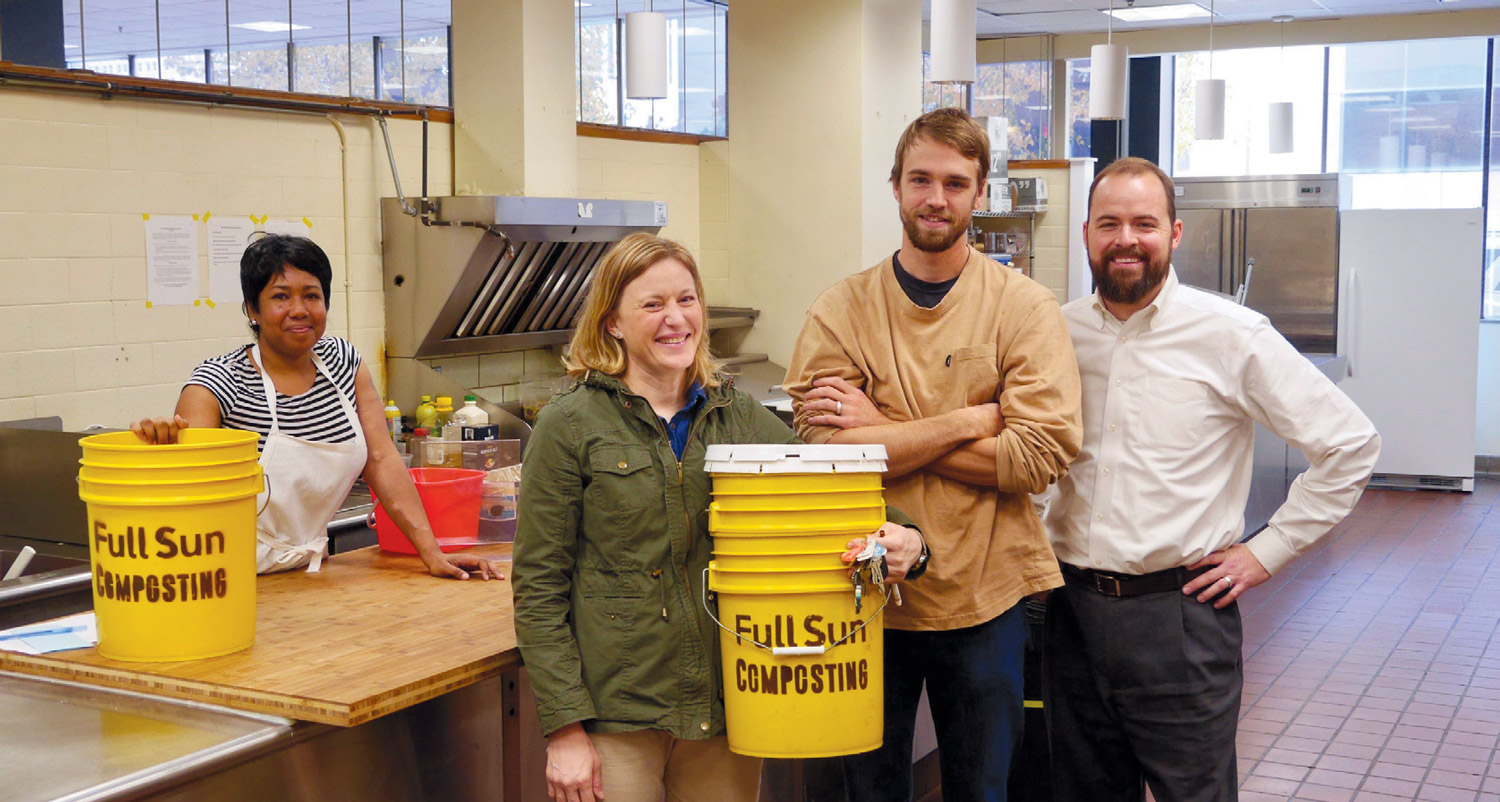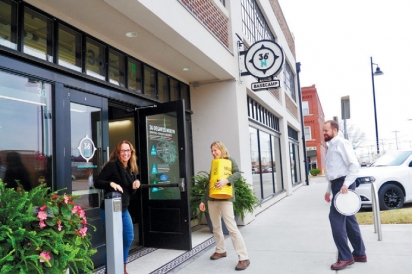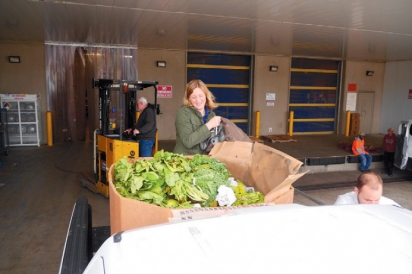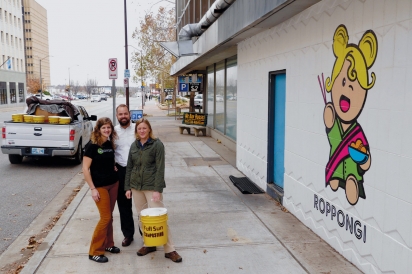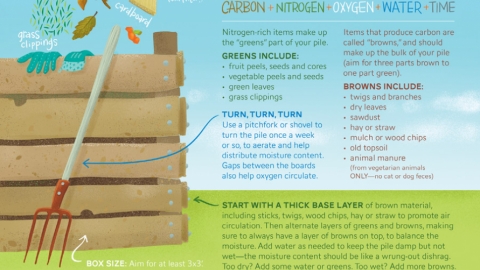Full Sun Composting
On a mission to divert food waste
Beneath the industrial coffee grinder at 36 Degrees North are two bright yellow buckets. Friendly signage instructs kitchen users to feed the buckets with coffee grinds, tea bags, fruit and vegetable scraps—basically, any non-meat, non-dairy lunch leftovers. Though people file through the office’s kitchen throughout the day, the buckets are filled almost exclusively with coffee grounds when they are picked up at the end of the week. Bread crusts, banana peels and apple cores are presumably discarded with the regular trash.
Getting people to understand the value of composting and normalizing that process is one of the biggest challenges facing Full Sun Composting, a local startup led by husband-and-wife team Don and Natalie Mallory. Not everyone is suited for the business of composting, but Natalie insists the stars aligned bring this endeavor to life. While Don’s background is in business and marketing, Natalie grew up on a dairy farm learning about environmental stewardship. Though they always knew they wanted to start a business, Don wanted to center that business around a product. Natalie saw opportunities around service-based businesses. What they found in their own backyard was a business opportunity that could be both at once.
On the service side, Full Sun Composting collects food waste from commercial kitchens and restaurants such as The Vault and the Community Food Bank. The food waste is then converted into commercial compost and made available to home gardeners. Fresh Full Sun Compost is currently available by word of mouth and at Grogg’s Green Barn, but there are plans to expand. The company is currently participating in the BetaBlox accelerator program, where they are learning valuable lessons about business growth strategies. “We’re trying to hang with the cool kids,” Natalie says of their competition. Small compost companies much like theirs have popped up in Austin and Oklahoma City. Some even provide their pickup service by bicycle.
There is no shortage of food waste in our culture, however. Food scraps make up approximately 25% of residential trash and nearly 95% of the food we throw away ends up in landfills or combustion facilities. Not only does food waste take up unnecessary space in landfills, it releases methane emissions, a potent greenhouse gas, as it decomposes. When food scraps are composted, however, the aerobic process eliminates those emissions and nutrients are captured in the food cycle.
Full Sun Composting began in October 2016, when the Community Food Bank saw a need to divert their food waste. They had looked at composting on site but realized it would require full-time staff to oversee the effort. The Mallorys saw the business opportunity they had been looking for, having been backyard gardeners and composters for years. They completed a 40-hour compost operator training to make it official, though the compost processing still takes place in their backyard for now. One might wonder how large-scale composting affects neighborly relations. Is it messy? Does it smell?
To the contrary.
“Our neighbors have been tremendous,” Natalie says. In fact, their neighbors are generous in contributing to the effort, dropping pumpkins and bags of leaves on the porch for use in compost piles.
Looking ahead, the Mallorys hope to expand their service to more restaurants and maybe even to residents. In many cities across the country, curbside food waste collection is a service made available to residents. Next year, they plan to double their intake of food waste. Their current operation is entirely manual so they plan to utilize more technology to compost more efficiently and bring on more skilled composters. And, of course, educating the masses about the many benefits and uses of compost is vital to their business model.
When asked about the goals for the company, Natalie aims high: 100% of Tulsa’s food waste diverted. Then 100% of Oklahoma’s food waste.
Is it possible?
“In this first year, with two people and an F-150 pickup, we diverted 30,000 pounds of food waste,” Natalie says. “With minimal effort you’re able to do big things.”


